Stress and anxiety can upend our lives in countless ways, including our health and well-being, family dynamics, careers, financial stability, social lives, and more. But it doesn’t need to be that way — you deserve to feel good about yourself and your life. And although mental health treatment can be costly, your health savings account (HSA) could make it easier on your wallet. Here's what to know about this tax-savvy account and how to use the money for your mental health.
What are the benefits of a health savings account?
If you have a high-deductible health plan, you may already have a health savings account (HSA) to go with it. As long as you have an eligible high-deductible health plan, you can open an HSA through your employer or on your own. But unlike a flexible spending account (FSA), another tax-friendly account, there is no deadline to spend the money. Another perk is your HSA is portable, so you can take it when you leave your job.
HSAs are one of the best places to stash your cash because these accounts offer three tax breaks. Since you can use the money for qualified healthcare expenses, these tax breaks are like getting a discount on your health costs.
First, you can contribute money directly from your paycheck to your HSA and it won't be subject to income taxes. (You can also make separate, non-payroll related deposits and get your benefit at tax time.) Second, if your account allows you to invest the balance, your money can grow tax-free. And the third tax benefit of an HSA is that you can use your funds anytime to pay for qualified medical expenses without taxes or fees (IRS) We'll cover more on qualified medical expenses below.
How to use your health savings account for mental health
If you're wrestling with mental health issues, you're not alone. According to the National Alliance on Mental Illness (NAMI), one in five adults in the United States struggles with mental illness every year. Unfortunately, health insurance plans are still making it difficult to get treatment, with strict eligibility for coverage and lack of access to providers. While this can lead to high treatment costs, your HSA could help ease the financial burden.
1. Prioritize your annual physical
If you have been skipping your annual physical, it may be time to make those appointments a priority. Here's why: Your doctor could diagnose an underlying condition, like diabetes, that could be contributing to your mental health issues. Your doctor may also identify adverse side effects from one of your medications. (Mayo Clinic)
Although many health plans cover preventative care, including depression or alcohol misuse screenings, your diagnostic tests could cost extra. Luckily, you can use your HSA to pay for any bills you receive after your visit.
Even without another chronic health problem, your physician could be a reliable resource. They may have referrals for a therapist or psychiatrist if needed.
2. Start seeing a therapist
Whether you're navigating a one-time crisis or ongoing challenges, working with a licensed therapist can be an effective way to develop healthier coping strategies. Over time, you may also boost your communication skills and improve your relationships.
While many health insurance plans cover therapy, you may have trouble finding the right in-network provider, especially if you need someone with specific types of expertise, and paying for therapy out-of-pocket can be costly.
According to GoodTherapy, a mental health provider directory, therapists’ average rate can range from $65 to over $250, depending on their location, the provider's credentials, and more.
The good news is mental health therapy, including virtual appointments, is an HSA eligible expense. You can use your account to cover the cost of your sessions or get reimbursed.
3. Meet with a psychiatrist
For an acute disorder, it may be helpful to meet with a psychiatrist. These medical doctors specialize in mental and behavioral health and may diagnose your condition. After getting diagnosed, you can work with your doctor on finding the right treatment, which could include psychotherapy, medication, a combination of both, and more. (Psychiatry.org)
The problem is only 55% of psychiatrists accept health insurance, compared with physician specialists in other medical fields, according to a 2015 study from JAMA Psychiatry. This constraint makes it difficult to find the right professional. But there is a solution: using your HSA funds to pay for psychiatrist visits.
4. Consider taking medication
Depending on your diagnosis, your psychiatrist may prescribe a medication to manage your mental illness. These medications may include antidepressants, antipsychotics, mood stabilizers, stimulants, and more.
While some medications can be costly, your doctor may prescribe the less expensive generic vs. the brand name drug. But if there is no generic available or your doctor insists on the brand name, you can use your HSA to cover the cost.
5. Evaluate your sleep habits
If getting enough sleep is a constant battle, you could be suffering from a sleep disorder. According to the Sleep Foundation, about one in three Americans have trouble sleeping at least once per week. While anxiety, depression, substance abuse, or another mental illness may contribute to sleep disorders, it may be another condition.
You can start by speaking with your primary care physician. They may suggest getting a sleep study, which could identify disorders like sleep apnea, insomnia, sleepwalking, periodic limb movement disorder, and more.
If your health insurance doesn't cover the sleep study, it may be HSA eligible. Before scheduling the sleep study, though, be sure to contact your insurance company and HSA plan administrator.
Which mental health expenses are HSA eligible?
While HSAs offer tax benefits, you can only use the money for "qualified medical expenses." Otherwise, you will owe taxes and a 20% penalty on the withdrawal. This IRS-approved list includes mental health-related services like therapy, psychologist visits, psychiatric care, alcoholism treatment, and more. Services like marriage counseling would not be eligible. You can see the full list of qualified medical expenses here, but you should speak with a tax professional when in doubt.
According to Talkspace.com, acceptable HSA therapy costs can include:
- Psychotherapy session: Psychotherapy (talk therapy) is an essential form of treatment for many types of mental health conditions. Because health insurance doesn’t always cover all of the cost of treatment, using your HSA to pay for the difference can be financially savvy.
- Medication prescribed by a psychiatrist: If your doctor or psychiatrist prescribes medication to treat symptoms of a mental health condition, this would be a qualified expense that you could be reimbursed for.
- Inpatient psychiatric care: Prescription medication that’s prescribed to treat a mental health condition is generally eligible for HSA reimbursement. This can be a welcome relief if you have prescriptions with high co-pay amounts or that your insurance doesn’t cover.
- Mileage allowance: Mileage to travel to and from appointments, as well as the cost of tolls and parking, can be reimbursed by your HSA. You must be diligent about recording the miles so you can verify any travel expense. Only travel related to medically necessary appointments is allowed.
- Transportation: Transportation is an eligible expense that can be covered by an HSA. You might need to document the reason for transportation, which can typically be done through a prescription or a diagnosis.
- Lodging and meal allowance: If you have to travel more than 50 miles away from your home for therapy, your HSA account can reimburse you for up to $50 per person per night.
- Psychiatric care: Psychiatric care is a covered HSA expense because psychiatrists are medical specialists. Both the cost for therapy and medication would be eligible.
- Specialized treatment care: Several types of medical treatment that rely on specialized medical care would be an eligible expense. For example, substance-abuse clinics that offer inpatient treatments would qualify. Acupuncture used for either physical or mental health care treatment might also be allowed. Finally, transportation to get to and from community group meetings or other outpatient sessions, like Narcotics Anonymous (NA) or Alcoholics Anonymous (AA), qualify.
- Gym membership or health club dues: If you have a mental health condition that’s diagnosed, and it’s recommended that you exercise as part of your medical treatment plan, you might be able to get your gym membership reimbursed through your HSA. Note you may need a letter of medical necessity.
- Over-the-counter (OTC) products: Several household products and OTC items are eligible for reimbursement. Many of them you can get directly from the HSA store. OTC products that are specific to mental health care like herbal supplements and a light therapy machine to treat seasonal affective disorder (SAD) could qualify with a letter of medical necessity from a medical practitioner.
Always save your receipts
Whether you are swiping your HSA card or getting reimbursed, saving your healthcare receipts is critical. Anytime you spend money from your HSA, you will need itemized receipts to prove each item is a qualified medical expense. Once tax season rolls around, you can make sure your receipts match your tax forms before filing your return. You can ask your healthcare provider for itemized receipts after each service or a cumulative record at the end of the year.
Make the most of your health savings account
Unfortunately, mental health stigma still makes it difficult for some to seek treatment, but the sooner you begin, the faster the relief may come. Mental health issues can be a life-long challenge, but you may find it's easier to get healthy or manage a chronic condition with a proactive approach. Mental health treatment—therapy, medication, self-care—have made recovery a reality for most people experiencing mental illness. Although taking the first steps can be confusing or difficult, it's important to start exploring options.
Prioritize visits with your primary care physician to cover your general health and well-being. If you need a therapist or psychiatrist, they may have suggestions for who to see. Depending on your situation, medication may be necessary to manage your illness. Your doctor may also recommend lifestyle changes, like diet and exercise shifts. It may take a combination of tactics, but once you start feeling better, all of your effects will be worth it.
-
Thank you for visiting the HSA Store Learning Center! Don’t forget to follow us for more helpful tips on Facebook, Instagram, and Twitter!

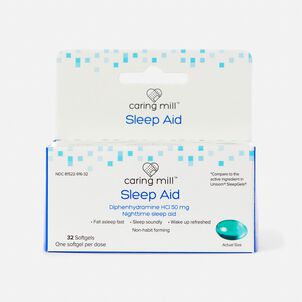

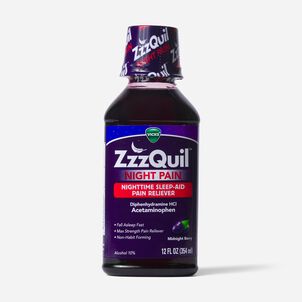

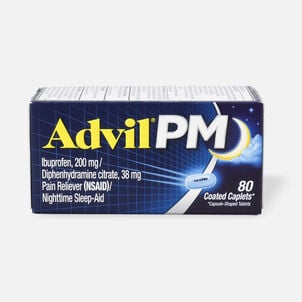

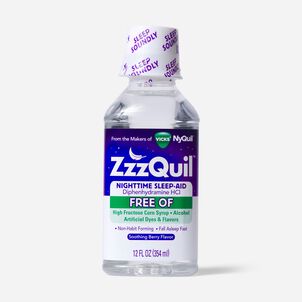


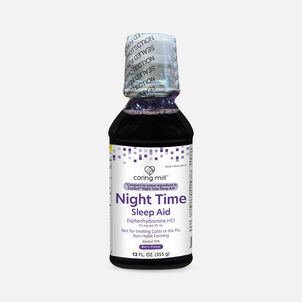
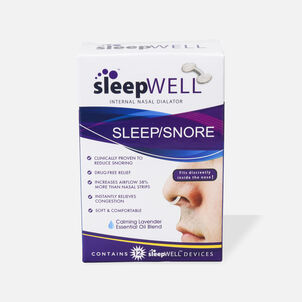

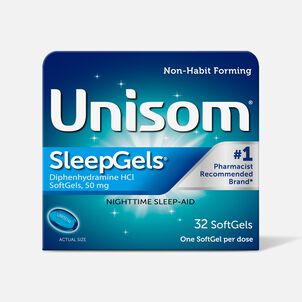
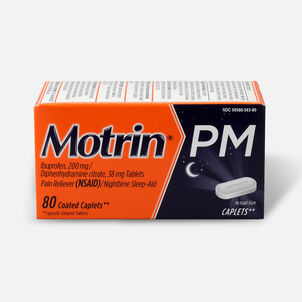
.png)
















